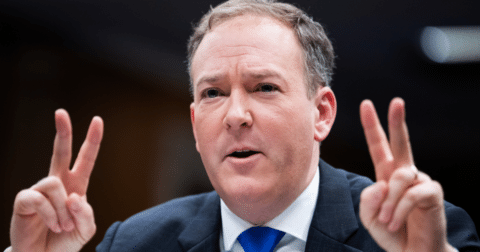Investigation
What Does a Small Town Do When the Water Is Undrinkable?
Climate•8 min read
News
The meat industry’s climate pollution is largely unregulated, but the EPA’s proposed policy reversal could make it even worse.


Words by Seth Millstein
On July 29, EPA administrator Lee Zeldin announced that the agency plans to rescind its 2009 finding that greenhouse gas emissions are harmful to human health. The agency relies on this finding to regulate climate emissions, and experts say that rescinding it will imperil public health and empower major polluting industries. The decision isn’t final, and will likely be appealed. As efforts to regulate emissions from factory farms are already nonexistent, the reversal, if it goes through, will only further dampen efforts to reign in meat industry pollution.
“Once again, Lee Zeldin and the Trump administration are making it clear they have no care or concern for the health and wellbeing of the American people or future generations,” Food & Water Watch policy director Jim Walsh told Sentient in an email. “Zeldin and Trump are concerned only with maximizing short-term profits for polluting corporations and the CEOs funneling millions of dollars to their campaign coffers.”
The U.S. emitted around 6.34 billion metric tons of CO2 equivalent in 2022, according to the EPA. Around 29 percent of these emissions come from transportation, while 10 percent come from agriculture. Globally, at least 26 percent of all greenhouse gas emissions are the result of food production, with another study putting the figure at over one-third.
In 2003, the EPA determined that it lacked the authority to regulate greenhouse gasses for climate change purposes. An environmental lawyer sued, arguing that greenhouse gasses are air pollutants, and that the EPA has the obligation to regulate them under the Clean Air Act. The Supreme Court agreed, and ordered the EPA to determine whether or not greenhouse emissions are harmful to human health and, if so, to regulate them.
Under the Obama Administration, the EPA concluded that greenhouse gases are indeed a public health hazard, and that it does have an obligation to regulate them. Often referred to as the 2009 Endangerment Finding, this conclusion formed the legal basis for the agency’s future regulations on greenhouse gas emissions over the next 15 years.
Under current law, the EPA does not regulate greenhouse emissions from factory farms at all. There was once a requirement that farms notify the EPA if their air emissions exceeded certain limits; however this was eliminated for farms altogether under the first Trump administration.
So far, the EPA has primarily used the Endangerment Finding to regulate emissions from vehicles and the energy industry. But rescinding the finding will eliminate the agency’s ability to regulate any greenhouse gas emissions, including those from factory farms and other agricultural facilities, as well as other sectors.
Zeldin presented the move as a cost-saving measure, claiming in a press release that “the real threat to Americans’ livelihoods” is the regulation of greenhouse gasses, not the gasses themselves. Walsh, however, compared the EPA’s decision to “a fire chief claiming that they shouldn’t fight fires,” calling it “as malicious as it is absurd.”
Bill Magavern, policy director at the Coalition for Clean Air, told Sentient in an email that the Endangerment Finding “is required by the Clean Air Act,” and that rescinding it “would be contrary to law and well-established science.”
“This is another move by the Trump/Zeldin EPA to benefit their sponsors in the fossil fuel industry and jeopardize the health of all Americans,” Magavern claimed.
While running for president in 2024, Trump apparently told oil executives and lobbyists that if they donated one billion dollars to his election campaign, they’d save more than that in taxes and legal expenses if he won the presidency. According to the organization Climate Power, the fossil fuel industry donated $96 million to Trump directly, and $121 billion to Republican candidates, during the 2024 cycle.
Zeldin’s announcement is not necessarily the final word on the rescission, however. Before it’s official, the change will first be published in the Federal Register, where it will be open to public comments.
Assuming it’s ultimately approved, environmental groups will likely sue to prevent it from taking effect. While it’s too soon to say how any future lawsuits over the change will unfold, the U.S. Court of Appeals for the D.C. Circuit upheld the finding in 2023, and the Supreme Court declined to hear a challenge to it the same year. In addition, the 2022 Inflation Reduction Act codified the Endangerment Finding into federal law, which could further complicate the administration’s efforts to rescind it.